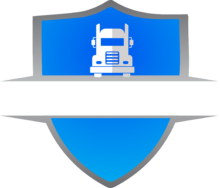Umbrella Insurance
How Does Umbrella Insurance Work?
Umbrella Insurance is a type of extra insurance that provides protection to your family and assets beyond the limits and coverages of other insurance policies. Since the purpose of umbrella insurance is to protect your assets, it makes sense you buy an umbrella insurance policy only if you have assets.
This can be crucial for you if you are liable for a claim that exceeds your homeowner’s insurance or auto insurance.
Umbrella Coverage works in two ways:
- Umbrella liability insurance helps cover the gaps between your policies. It gives coverage for claims that are not included in other liability policies like libel, slander, false arrest, etc.
- Umbrella liability insurance helps when your primary liability insurance limits are too low. It provides coverage when your homeowner and auto insurance limits have been exhausted.

What Does Umbrella Insurance Cover?
A personal umbrella insurance policy enables protection from large and potentially overwhelming liability claims. Generally, it provides coverage for the following:
- Bodily Injury liability
It covers the medical expenses and other costs of damage to a person’s body caused by a car accident where you are at fault, an attack on a third person by your pet/dog, injury to a guest who falls and injures within your premises, or injury to a child playing in your yard.
- Property Damage liability
It covers the cost of damage to a person’s property, like in an auto-accident where you are established at fault.
- Landlord liability
It covers the claims you might face as a landlord. These could include the tenant’s dog biting someone and injuring them and someone injuring themselves on your rental property due to a malfunction in the property.
- Legal fees
- False imprisonment
- Mental trauma
- Slander
- Libel
- Malicious prosecution
What is Not Included in Umbrella Coverage?
Typically, umbrella liability insurance does not extend to the following:
- Personal belongings, i.e. damage to you or your property
- Intentional or criminal acts causing injury to a third person
- Business losses
- Written or oral contracts where you assume liability
Do I Need Umbrella Insurance?
Although it is generally considered that umbrella insurance benefits those who have assets, there are several things that are included in the coverage. This is mainly because accidents, even when you are not at fault, can incur high costs for you in the form of medical bills of another person or repair of their property.
If you’re stumped whether you need umbrella insurance, ask yourself, ‘Can I be sued?’ If the answer is yes, which it most likely is given the wide range of things you can be held liable for, you need umbrella coverage.
However, certain conditions make you more susceptible to lawsuits, which makes it even more important to have umbrella insurance. These conditions include:
- If you own an asset (property, vehicle)
- You’re a landlord/have rented out a property
- If you’re a public figure
- You have teenagers
- You own a dog
- You own a house with a swimming pool
In case you have assets, umbrella liability insurance will ensure you do not lose them in a lawsuit.
Instances of Umbrella Liability Insurance
If a person is injured while playing in your backyard, you would be liable to pay for their medical bills out of your own pocket if you do not have umbrella liability insurance. Umbrella insurance policy helps protect the future of your family and loves ones in that it extends to them as well. If your wife who does not have auto insurance in her own name causes a car accident, your umbrella coverage will help with that. If your teenager is sued for slander or libel, your umbrella insurance will extend to them as well. Therefore, there is a vast scope of things that umbrella coverage includes.
Here are a few reasons you should apply for umbrella insurance:
- Gives peace of mind knowing you’re risk averse
- Saves you from losing your assets in a lawsuit
- Extends to your family (wife, teenage kids) who do not have homeowner’s insurance or auto-insurance in their own name
- Saves you from paying hefty bills out of your own pocket
- Covers a wide range of instances that your primary insurance doesn’t cover
- Covers for you when your primary insurance liability falls short
- It is cheaper than other insurance coverages
How Does Umbrella Insurance Help?
Let’s suppose you have homeowner’s insurance but the limit is set around $500,000. A visiting guest gets injured on your property and decides to pursue a lawsuit. You are sued for $1 million in charges. The cost you’re liable to pay is $500, 000 above your homeowner’s insurance limit. In normal circumstances, you would have to pay the hefty amount of $500,000 out of your own pocket.
However, if you have umbrella insurance, it will fill this gap in payment saving you from paying it out of your retirement funds or savings account. If you have umbrella insurance of $1 million, it will help cover the cost incurred for you as well as any legal fees arising with the lawsuit.
After the deductible, which you will pay out of your own pocket, the homeowner’s insurance will pay the rest up to the decided limit. Your umbrella policy will bear the remaining expenses so you only have to pay for the deductible out of your own pocket in the whole process.
Without homeowner’s insurance in this case, you would have to pay the umbrella insurance policy deductible and then use the coverage.
How Much Umbrella Coverage Do You Need?
You are at liberty to choose the umbrella coverage you require, although there are often state set limits. You can get in touch with Fastline Insurance to get the limit you need for your specific purposes.
Since umbrella insurance is cheap and covers a wide range of instances, you could opt for a higher limit. Protect yourself against a potential financial loss and apply for umbrella insurance today!
